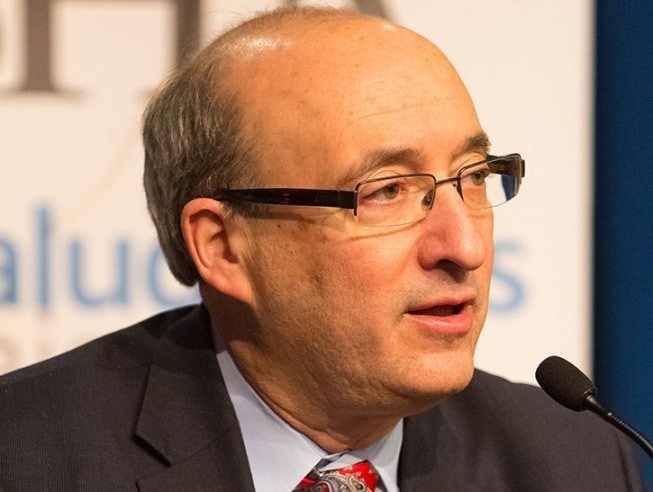On April 21, the Council of Actors’ Equity Association (the national union for professional actors and stage managers in live theater) unanimously passed a new internal membership rule that members may only return to work when the union deems it safe to do so, and that they will not sign over their rights to a safe workplace. Three days later, on April 24, Equity announced that public health expert Dr. David Michaels, who served as Assistant Secretary of Labor for the Occupational Safety and Health Administration (OSHA) from 2009-2017, during the Obama administration, would consult for the union to help develop new model health and safety standards for COVID-19, and would be key to implementing a plan in which member safety is put first and decisions are made with a clear scientific basis.
This afternoon, Equity Executive Director Mary McColl, President Kate Shindle, and Communications Director Brandon Lorenz joined Dr. Michaels – a noted national and international speaker on issues of workplace safety and health, the relationship of safety, sustainability, and operational excellence; the use of science in regulation, and scientific integrity – in a virtual press conference, to update the theater community and the public on the progress made in developing those standards, which will eventually allow theaters to reopen and to maintain a safe and healthy workplace.
The press call began with a brief review of the initiatives Equity has been undertaking since March 2, more than a week before the mandated closure of theaters on March 12. Both McColl and Shindle recognized that, while everyone wants the theater to come back, social distancing is problematic on stage, backstage, and in the house, and due to the seriousness of the pandemic, there’s “only one opportunity to get it right.” Doctor Michaels, who also acknowledged the inevitability of close proximity throughout the venues and the difficulty of using protective equipment during shows, then presented the four core principles that he has deemed necessary “to do this right” for the safety of the performers, the production team, and the audience.
Those guiding principles are:
- The epidemic must be under control, with effective testing, few new cases in the area, and contact tracing.
2. Individuals who may be infectious can be readily identified and isolated, with frequent, regular, and accurate testing with speedy results.
3. The way we audition, rehearse, perform, and stage manage may need to change and the venues we work in may need to undergo changes in order to reduce the risk.
4. Efforts to control COVID-19 exposure must be collaborative, involving Equity members, employers, the union, and all others involved in the production of theater. There must be a collective buy-in and ongoing evaluation and improvement of health and safety practices.
In the question-and-answer session that followed, Dr. Michaels, when asked about a timetable for reopening, reiterated the need for contact tracing and the crucial observation that “We don’t get to say, the virus does.” McColl and Shindle also made it clear that the concern for the health and well-being of the artists, as well as the theater-goers, is a top priority for Equity, which has spent the past 107 years of its existence ensuring the safety of its members. Consequently, the organization reached out to one of the country’s leading medical experts, and a champion for workers’ safety, for his guidance.

Dr. Michaels is currently a Professor in the Department of Environmental and Occupational Health at the Milken Institute School of Public Health of the George Washington University in Washington, DC. He received his Master’s degree in Public Health (MPH) and his PhD from Columbia University, and has also taught epidemiology at the CUNY School of Medicine and the Albert Einstein College of Medicine.






